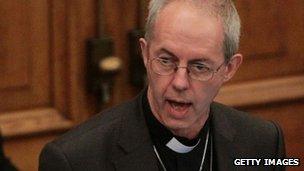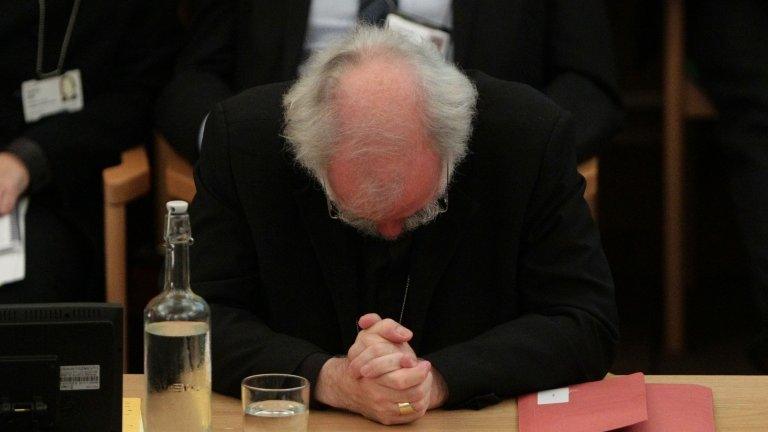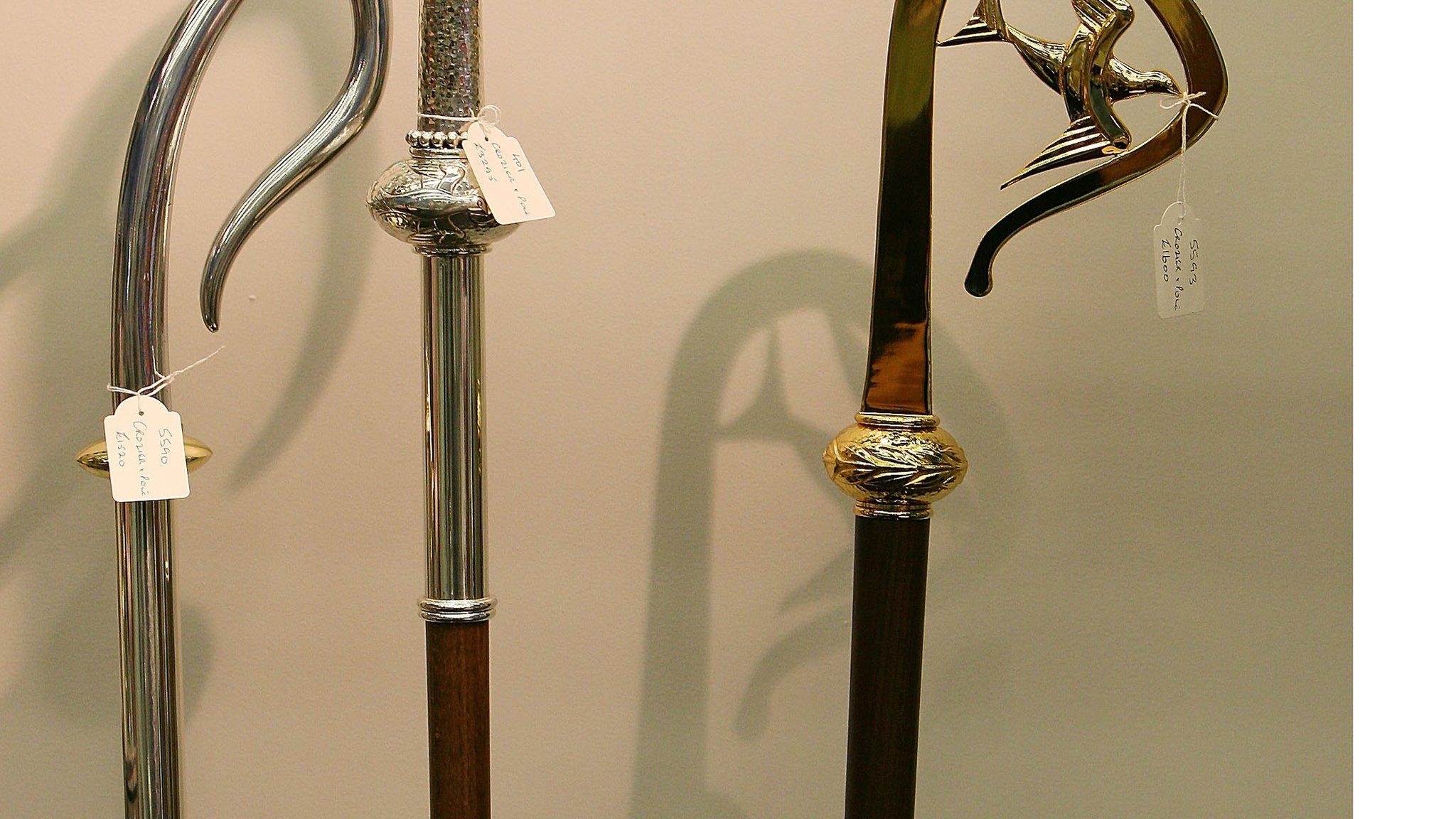Women bishops vote a 'grim day', says Justin Welby
- Published
- comments

The Bishop of Durham, Justin Welby, urged a 'yes' vote at the general synod
The next Archbishop of Canterbury has called the rejection of women bishops a "very grim day", as bishops prepare for an emergency meeting on the issue.
The ordination of women bishops in the Church of England was narrowly rejected by its ruling general synod on Tuesday.
The Rt Rev Justin Welby, who takes over the Church's top role next year, said the lost vote was hard "most of all for women priests and supporters".
Critics had said the change would not bring unity to the Church.
The proposed legislation paving the way for women bishops needed to gain two-thirds majority support in each of the synod's three houses - bishops, clergy and laity - but fell short by six votes in the House of Laity.
The result was greeted with emotion, with some supporters seen crying.
Bishop Welby, the current Bishop of Durham and a supporter of women bishops, tweeted overnight:, external "Very grim day, most of all for women priests and supporters, need to surround all with prayer & love and co-operate with our healing God."
Rowan Williams: "I'm feeling very much for women in ministry in the Church of England"
The outgoing Archbishop of Canterbury, the Most Reverend Rowan Williams, who will give his farewell address later, spoke of his "deep personal sadness" after the vote.
He said: "Of course I hoped and prayed that this particular business would be at another stage before I left, and... it is a personal sadness, a deep personal sadness that that is not the case."
The House of Bishops will meet from 08:30 GMT to "consider the consequences of the vote", the Church's media office said.
The general synod's voting requirements meant that although 324 members voted to approve the proposed legislation and 122 voted to reject it, it was not passed.
The House of Laity is the largest element of the general synod and is made up of lay members of the Church elected by its 44 dioceses.
The votes were, external 44 for and three against with two abstentions in the House of Bishops, 148 for and 45 against in the House of Clergy, and 132 for and 74 against in the House of Laity.
Controversy had centred on the provisions for parishes opposed to women bishops to request supervision by a stand-in male bishop.
Christina Rees, a synod member who has spent 20 years campaigning for women bishops, said: "It feels as if the House of Laity betrayed the entire Church of England last night.
"And I think basically that the people, the sort of extremes in our Church - the very conservative evangelicals and very traditionalist Anglo-Catholics - have no idea how this will be read by most people."
She said she thought that, to most people, "this just looks like blatant discrimination".
Equalities minister Maria Miller said the vote outcome was "very disappointing", and showed that the Church was "behind the times", sources said.
The Bishop of Norwich, the Right Reverend Graham James, said those Church members who were in favour of women bishops, but who had voted against the move because of concerns over the provisions for traditionalist parishes, were central to finding a solution.
"There's a very big challenge, I think, to those who voted against but actually pledged themselves to see in what way they could move forward so that women can be bishops in the Church of England," he said.
"There's a very big responsibility on them and upon the bishops in their leadership to bring this into effect as soon as possible."
The Catholic Group on the General Synod, which backed a "no" vote, said in a statement: "We regret the synod was put in the position whereby draft legislation failed at final approval because it was unclear and unfair in its provision for those who, in conscience, are unable to accept the ministry of women as bishops or priests."
It called on the House of Bishops to reconvene the talks started in the summer between representatives of different groups, chaired by Bishop Welby.
Zoe Ham, Church Society: "I am happy that the legislation in its form today has been rejected"
The Rev Prebendary Rod Thomas, chairman of the conservative evangelical grouping Reform, which also recommended a "no" vote, said: "My overall conclusion is that it is very good news for the Church of England.
"We have avoided what could have been a disastrous mistake for our unity and witness."
In New Zealand, where women have been ordained as bishops for decades, the Bishop of Christchurch, the Rt Rev Victoria Matthews, described the decision as a "product of fear".
"I have to admit I was gutted by the announcement. I would describe it as more than disappointing. As someone who is a woman in leadership and someone who dearly loves the Anglican communion, it was quite depressing."
- Published21 November 2012

- Published16 November 2014
